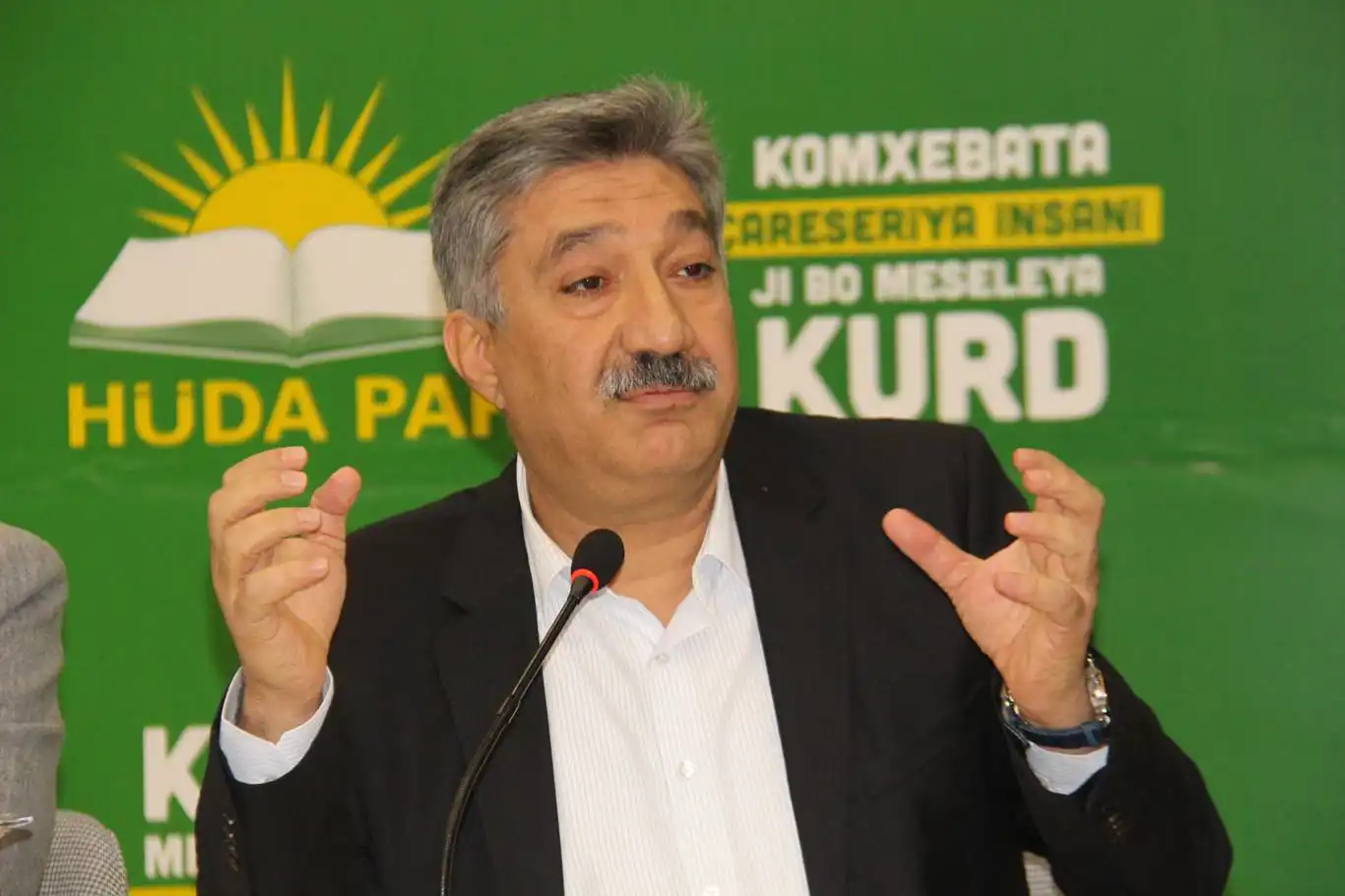Abdurrahman Kurt: Kurdish issue stems from 'Turkish racism'


The ‘Humanitarian Solution to the Kurdish Issue Workshop’, organized by HÜDA PAR, continues in Diyarbakır, bringing together academics, scholars, and politicians to discuss the historical, social, and political dimensions of the Kurdish issue.
On the second day of the workshop, former MP Abdurrahman Kurt delivered a presentation titled “A Historical Perspective of the Islamic Approach to the Kurdish Issue.” In his speech, he argued that the root of the problem lies not in Kurdish identity but in Turkish nationalism, which has disrupted social harmony and fueled conflict.
"The Real Issue is Extreme Turkish Nationalism"
Kurt emphasized that excessive Turkish nationalism has created division and unrest, rather than the Kurdish identity itself. He criticized the failure to properly frame the issue, stating:
"We have been asking the wrong question. Instead of recognizing the problem as excessive Turkism, we have continued to misdiagnose it. Because of this, while more than forty leftist movements have emerged around the Kurdish issue, not a single Islamic movement has fully addressed it. This reflects the deep influence of nationalist ideology on Islamic thought in Türkiye."
Misuse of Religion in Politics
Kurt also criticized the state’s use of religion as a tool to manage the Kurdish issue, arguing that Islam, at its core, promotes equality and brotherhood rather than division.
"If religion is to play a role, it should be used to remind people in Izmir, Ankara, and Istanbul that racism has no place in Islam. If someone advocates for the rights of Turkmens in Kirkuk but refuses the same rights to Kurds in Diyarbakır, then their faith is flawed. Without acknowledging this, how can we claim to solve the Kurdish issue?" he questioned.
"Türkiye Belongs to Both Turks and Kurds"
Kurt stressed that the Turkish state is as much a Kurdish state as it is a Turkish one, but excessive nationalism has fostered inequality and alienation.
"We built this country together. The problem is not the presence of Kurds, but the dominance of extreme Turkism. These lands—whether in Iraq, Syria, or Türkiye—are part of our shared history. Our blood is in the title deeds of both Istanbul and Diyarbakır because we never divided ourselves by race. The War of Independence was a struggle for all of us. If we want to build another thousand years of history together, we must first rid ourselves of this nationalist disease. Türkiye is greater than just the Turks," he asserted.
Call for Equality and Reflection
Condemning racism and fascism as the real threats to national unity, Kurt called for self-reflection and a commitment to true brotherhood.
"Those who divide this country are not the Kurds or other minorities, but the racists and fascists. We are all brothers and sisters, members of a society that believes in the oneness of God and considers all languages, cultures, and identities sacred. We do not judge people by their race but by their integrity and character. It is time to reflect, confront these realities, and correct the mistakes of the past," he urged.
The workshop continues with further discussions on the Kurdish issue, seeking solutions based on humanitarian and Islamic values. (ILKHA)
LEGAL WARNING: All rights of the published news, photos and videos are reserved by İlke Haber Ajansı Basın Yayın San. Trade A.Ş. Under no circumstances can all or part of the news, photos and videos be used without a written contract or subscription.
HÜDA PAR (Free Cause Party) Chairman Zekeriya Yapıcıoğlu paid a formal visit to Safi Arpaguş on Tuesday, following the latter's recent appointment as the President of Türkiye's Directorate of Religious Affairs (Diyanet).
President Recep Tayyip Erdoğan has reaffirmed his government’s commitment to serving the entire nation with dedication and resolve, pledging to continue working selflessly for the peace, stability and prosperity of Türkiye as the country enters 2026.
The Union of Scholars and Madrasas (ITTIHADUL ULEMA) has released a condolence message honoring Abu Ubaida, spokesperson of the Izz al-Din al-Qassam Brigades, and several commanders who were killed in attacks carried out by Israeli occupation forces.
HÜDA PAR (Free Cause Party) Spokesperson and Batman MP Serkan Ramanlı addressed multiple pressing domestic and international issues, with a strong focus on the socioeconomic impacts of rising energy costs as winter intensifies across Türkiye.